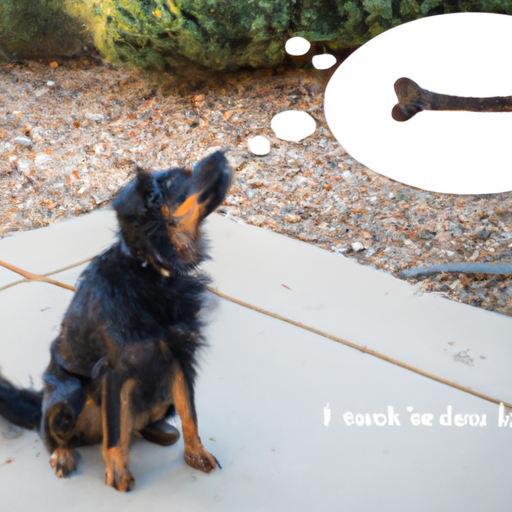As a devoted caregiver to your furry friend, you might have observed a peculiar behavior—your dog eating charcoal. It’s not unusual to see your dog munching on something unusual, but when it comes to charcoal, you may start to worry. Understanding why dogs eat charcoal can help you provide better care for your pet and prevent any potential health issues.
1. Understanding Pica in Dogs
Pica is a condition where animals, including dogs, eat non-food items. Charcoal falls into this category, and dogs with pica may show an unusual interest in it. But why does this happen? Let’s explore the reasons.
1.1 Nutritional Deficiencies
Your dog might be lacking specific nutrients in their diet, leading them to seek out alternatives. Charcoal, particularly the “biochar” variety, contains certain minerals that your dog might crave.
1.2 Digestive Issues
Charcoal has been used in medicine for centuries because of its ability to absorb toxins. If your dog has a stomach upset, they might instinctively eat charcoal to alleviate the discomfort.
1.3 Behavioral Issues
Sometimes, eating charcoal can be a sign of boredom or anxiety. Dogs often use their mouths to interact with the world, and if they’re bored or anxious, they might start chewing on random objects, including charcoal.
2. Is Eating Charcoal Safe for Dogs?
While charcoal isn’t toxic to dogs, it isn’t exactly safe either. Here’s why:
2.1 Respiratory Problems
Inhaling charcoal dust can cause respiratory issues in your dog. If they’re chewing on charcoal, the dust can get into their lungs, leading to coughing, wheezing, and even serious lung diseases.
2.2 Gastrointestinal Blockage
Charcoal pieces, especially if large, can cause a blockage in your dog’s gastrointestinal tract. This is a serious health concern that requires immediate veterinary attention.
2.3 Exposure to Harmful Substances
If the charcoal your dog is eating has been used for a barbecue, it might be coated with lighter fluid or meat drippings. Both of these can be harmful to your dog.
3. Preventing Your Dog from Eating Charcoal
Fortunately, there are several steps you can take to prevent your dog from eating charcoal.
- Provide a Balanced Diet: Ensure your dog’s diet is nutritionally complete and balanced. Consult with your vet to ensure your dog’s dietary needs are being met.
- Redirect Chewing Behavior: If your dog is chewing out of boredom or anxiety, provide them with appropriate chew toys or engage them in activities to keep them occupied.
- Keep Charcoal Out of Reach: Store your charcoal in a place where your dog can’t access it. If you’re having a barbecue, clean up any leftover charcoal immediately.
4. When to Seek Veterinary Help
If you suspect your dog has eaten a large amount of charcoal, especially if they’re showing signs of respiratory distress or gastrointestinal blockage, seek veterinary help immediately. Symptoms to watch out for include:
- Persistent coughing or wheezing
- Vomiting or diarrhea
- Loss of appetite
- Abdominal pain or discomfort
- Changes in behavior
5. Frequently Asked Questions
Q: Can charcoal treats be given to dogs?
A: Yes, charcoal biscuits or treats are safe for dogs. They can aid digestion and help freshen your dog’s breath. However, these should be given in moderation.
Q: Can charcoal help a dog with diarrhea?
A: While charcoal can absorb toxins, it’s not recommended to treat your dog’s diarrhea without consulting a vet. Diarrhea can be a symptom of many different health issues, and it’s important to get a proper diagnosis.
Q: Can dogs eat activated charcoal?
A: Activated charcoal is not toxic to dogs and is sometimes used by vets to treat poisoning. However, you should never administer activated charcoal to your dog without a vet’s guidance.
Remember, as a caregiver, your job is to ensure your dog is healthy and happy. Understanding why they might be driven to eat charcoal and how to prevent it can help you provide the best care possible for your furry friend.



